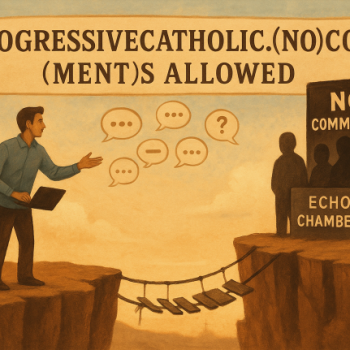TROUBLE AT THE CHUPPAH: MARRIAGE, ISRAEL AND ORTHODOXY
There have been a number of interesting articles of late about the issue of conversions, interfaith marriages, Orthodoxy, and Israeli citizenship. Below, find the most recent turn of events (from Religion News Service via Beliefnet.com) followed by an article from New West about a recent change in Montana’s peculiar double-proxy wedding law, and a 2006 story from the Jerusalem Report about proxy weddings and one rabbi (our friend Allen Secher aka “The Lone Rabbi”) who helped a couple jump a few hurdles to get married in Israel even though they technically weren’t allowed (and, well, technically weren’t.)
Agreement on Jewish converts cancelled
New York — A landmark agreement between U.S. and Israeli Orthodox rabbis on conversion guidelines fell apart Monday (April 30) after Israeli rabbis signaled they want more control in deciding who can become an Orthodox Jew.
The Rabbinical Council of America, a U.S. Orthodox umbrella group, abruptly canceled plans to announce the agreement after dismayed American rabbis read a story in Monday’s Jerusalem Post indicating that Israel may not recognize North America’s conversion courts.
The announcement had been scheduled during the annual convention of the 1,000-member RCA here. Two RCA rabbis said they felt “frustrated” and “confused” by the new hurdles.
Beyond the more immediate issue of deciding who can become a Jew, the dispute reflects larger tensions over how much control Israeli rabbis should have over Jewish life in the diaspora. Some non-Israeli Jews have said their members have gone to great — sometimes humiliating — lengths to prove their Jewishness in order to marry or to gain Israeli citizenship.
The sticking point appears to be whether Israeli rabbis will allow U.S. rabbis to approve their own judges to sit on conversion courts. Rabbi Yitzhak Peretz, an aide to Chief Sephardi Rabbi Shlomo Amar, told the Jerusalem Post that new judges would need to appear before a tribunal in Jerusalem in order to be approved.
The Israeli rabbis decided three years ago that they would no longer automatically recognize conversions performed outside Israel unless the officiating rabbi was on a short list of “accepted” rabbis.
FOR THE FULL STORY (RELIGION NEWS SERVICE VIA BELIEFNET) CLICK HERE
Montana’s Unwanted Niche Market: Double Proxy Marriages
Here’s a piece of trivia on what makes Montana unique: it’s the only state (and maybe the only place in the world) that allows double proxy marriages. Translation: neither the bride nor groom has to show up to the wedding.
Stand-ins, usually attorneys, can exchange the vows of matrimony on behalf of the blissful, but physically absent, couple. While three other states offer proxy weddings—California, Colorado and Texas—these states still require that at least one of the parties appear before the civil authorities.
Unfortunately, the double proxy marriage law—a classic example of Montana’s don’t-mess-with-the-West, live-and-let-live libertarian culture—is now straining the State’s “resources,” as Representative Deborah Kottel (D-Great Falls) pointed out Tuesday morning on Montana Public Radio while discussing related House Bill 361, which she sponsored. Apparently, couples from as far away as China and Sweden are getting married in Montana, while never leaving their respective separate homes, much less countries.
Slightly bizarre, isn’t it? In the age of globalization, Internet dating, and a jet-setting, cosmopolitan culture, double proxy marriages now seem more and more appealing. But the increase in non-English speaking marriage license applicants is sapping valuable time from the county employees (namely District Court Clerks) processing the licenses. A procedure that usually lasts 30 minutes can take up to two hours when staff work with foreigners, due to language barriers, name misspellings, and other snafus.
That’s why Kottel sponsored House Bill 361, which amends the laws for proxy weddings. Don’t worry, though—the bill still doesn’t require either party to actually be present for the marriage. It just ensures that at least one member of the couple is either a Montana resident or in the Armed Forces of the United States. Hopefully, this change will reduce the time county employees spend processing marriage licenses from out-of-state and out-of-country lovebirds.
Double proxy marriage law originated in the 1860s during Montana’s mining boom, when it was still a territory. Young men from far and wide streamed into the area around Butte. Searching for fortunes had its downside, however—the Montana territory was lacking eligible women, and quite distant from many of the miners’ East-Coast-based fiancés. Thus, Montana enacted the double proxy marriage law, which has remained in place ever since. A legal U.S. proxy marriage is recognized by every state except Iowa, and recognized by all branches of the military.
FOR THE FULL STORY (NEW WEST) CLICK HERE
WHEN MEJAH MET SYLOKE
BY Isabel Kershner
The Jerusalem Report, 16 April 2006
Standing opposite the ancient walls of Jerusalem’s Old City at the crack of dawn on Friday, March 24, I got to perform an unusual if controversial mitzva, by enabling what may well be history’s first legally registered Jewish cyber-wedding. Not generally known for pushing the halakhic envelope, I kind of fell into this escapade, it being one of those occasions when the journalist gets inexorably entangled in the story.
It all started in late January when I found myself in Bozeman, Montana, after a book tour stop at Montana State University. At the end of a lively Friday night dinner hosted at Starky’s deli by the small and hospitable Jewish community, Quincy OrHai, a “Jewbilly” with a goat farm just east of Bozeman, promised me a scoop about an upcoming wedding. OrHai, who believes that marriage should be primarily “a spiritual affair,” and that “governments have no business either authorizing or preventing people from forming a legally recognized bond,” had got wind of the fact that a Jewish couple was planning on a precedent-setting way of getting married.
Apparently they wanted a Reform wedding under a huppa in Jerusalem, but since all marriages in Israel have to be sanctioned by the Orthodox rabbinate, theirs would not have been legally recognized by the Jewish state – a problem, since the couple intend to make aliya later in the year. Most couples facing a similar dilemma would normally go abroad to get a civil marriage license, which Israeli officialdom would then recognize. But this particular couple, from Worcester, Massachusetts, was determined to have the same date appear on their ketuba, signed in Jerusalem, as on the civil license.
The solution: Montana, the only U.S. state that allows a double proxy wedding, where neither the bride nor groom need be physically present. That way, the couple could have a Reform marriage in Jerusalem and simultaneously, via some kind of live Internet video or phone link-up, execute a civil marriage in Montana. Allen Secher, Montana’s roving rabbi serving the vast state’s 800 affiliated Jews, had been recruited by the couple to help make it all happen.
Mejah Shireem Ben-Yonatan, a 30-year-old psychiatrist, was born in India and lived in Israel for five years as a child before returning to the United States with her American parents. Syloke Joshua Soong, a statistician, 43, was born in Malaysia to a Christian fundamentalist family, left for Singapore and was transferred by his company to the U.S. in 1995. In 2003 Syloke got a new job in Worcester and met Mejah through roommates.com.
I finally met Mejah and Syloke when they arrived in Jerusalem to perform the deed. I went to see them at the two-star Palatin Hotel in the city center. They came down from their room wearing animal hats – his with moose antlers, hers with bear ears – souvenirs from a pre-wedding trip to Montana. I didn’t say anything.
Syloke told me he had wanted to become a Jew since he was 12, and had converted in a Reform synagogue in Maine in 2002. After meeting Mejah, he asked her to marry him last Rosh Hashana and promised her the wedding would take place in Jerusalem on her birthday, March 24. It took her till Yom Kippur to say yes. And that’s when the couple embarked on their search for a way to legally wed in Jerusalem. Mejah called around in Montana, “but a lot of people didn’t know what I was talking about, or how to perform a double proxy wedding,” she says. Someone recommended doing it through a Native American tribal court, but that didn’t work out. In the end, the couple got to Judge David Ortley, a Justice of the Peace in Kalispell, Montana, and Rabbi Secher, who agreed to officiate and execute the Montana civil license. In Jerusalem, the marriage would be performed by Hebrew Union College’s Rabbi David Wilfond. Secher would stand in for Mejah in Kalispell, and Bradley Johnson, the city judge of Whitefish, Montana, for Syloke.
Originally, Mejah and Syloke had wanted the huppa to take place at sunrise at the Yad Vashem Holocaust memorial. But although Syloke felt it was the best place “to connect with the Jewish community’s past, present and future, and commemorate those who have gone through the valley of darkness,” Yad Vashem refused. They decided to get married in the park behind the King David Hotel, opposite the Old City walls, instead.
By the time we met at the Palatin, two days prior to the wedding day, Mejah had been to five banks before she could set up an account that would enable the couple to rent a phone with UMTS capability, which they could connect to a laptop and use as a modem. The idea was to broadcast the wedding live to Montana on their website www.blessed-are-the-geek.com. After our chat, they asked me if I’d be coming to the wedding. I asked if I was invited. They said that, actually, they needed me. The wedding party consisted only of Mejah’s parents and one friend from the States. The couple were short a Jewish witness and a pole-holder to hold up one of the four corners of the tallit that would serve as the huppa.
But the video link-up didn’t work, so in the end the marriage was done by speaker-phone, on Rabbi Wilfond’s cell. And that’s how I came to sign the ketuba, serve as a pole-holder and the phone-holder at the double proxy wedding in a park at the crack of dawn on March 24. Mejah was wearing an exquisite green sari; Syloke, an elegant matching Rajistani turban and suit. Mejah’s parents seemed pleased, and the friend a little bewildered.
After the traditional blessings and some words from Montana, Syloke broke the glass and we all – in Jerusalem and Montana – shouted “Mazal Tov.” “It’s a legal U.S. marriage, so it will be recognized here,” Mejah asserts. That remains to be seen.
After the huppa, Mejah and Syloke were planning on taking their wedding party to Yad Vashem, but I decided to skip that. Only later on, after I’d fully woken up from what now seems like a slightly surreal dream, did it strike me that because of the time difference, according to the Montana clock, the couple would have actually gotten married in Kalispell on the night of March 23.















